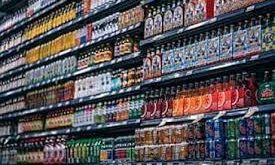
The Nigerian National Petroleum Company Ltd. (NNPC) on Wednesday, assured Nigerians that the company has sufficient stock of Premium Motor Spirit, otherwise known as petrol, to meet the needs of Nigerians.
This comes following the return of fuel queues in some parts of Abuja, the Federal Capital Territory,
“The NNPC Ltd. wishes to assure the public that the Company has sufficient PMS stock to meet the needs of Nigerians.
“The public is, therefore, advised not to engage in panic buying of petrol; and to I ignore all rumours that may suggest otherwise,” the statement read.
The corporation also assured Nigerians that it remains deeply committed to ensuring energy security for the country.
This comes hours after the NNPC had requested the sum of three trillion naira (N3,000,000,000,000) as fuel subsidy for 2022.
Minister of Finance, Budget, and National Planning, Mrs. Zainab Ahmed, disclosed this to State House correspondents after the Federal Executive Council meeting which was chaired by President Muhammadu Buhari.
“In 2022, because of the increased crude oil price per barrel in the global market, now at $80 per barrel, and also because NNPC’s assessment is that Nigeria is that the country is consuming 65.7 million litres per day, that we would end up with an incremental cost of N3 trillion in 2022,” the minister added.
According to Mrs Ahmed, by implication, the Federal Government will have to make an incremental provision of N2.557 trillion in order to meet subsidy requirements which currently averages about N270 billion per month.
 DailyrecordNg …Nigeria's hottest news blog
DailyrecordNg …Nigeria's hottest news blog







